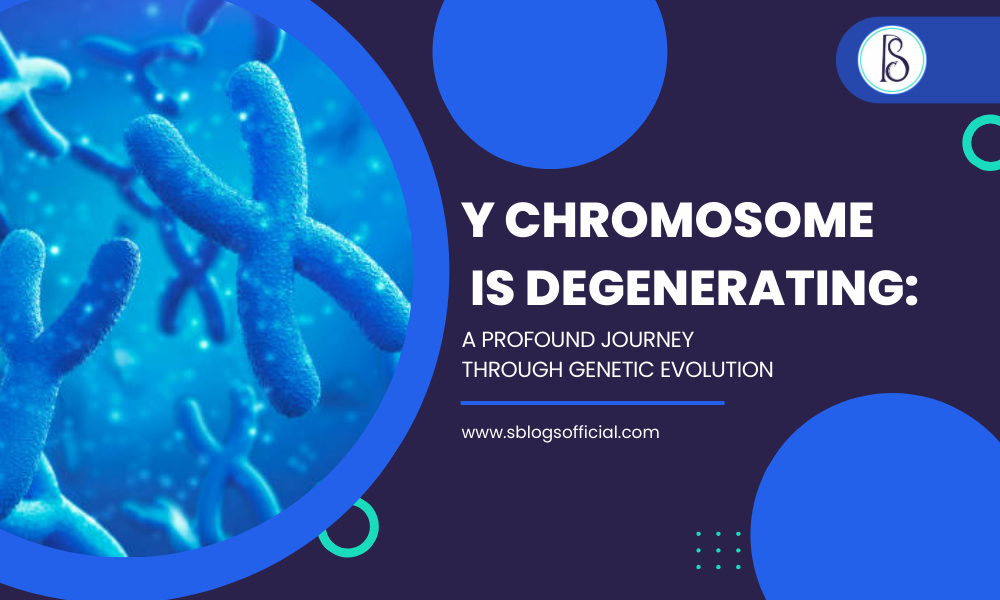
The narrative of the Y chromosome is degenerating has become one of the most fascinating scientific mysteries of our time. Unlike other chromosomes that maintain genetic stability, this unique genetic structure has been systematically losing its genetic material over millions of years, challenging our fundamental understanding of human reproduction and genetic survival.
The Genetic Erosion: Understanding How the Y Chromosome is Degenerating
Scientific research reveals a shocking trajectory: the Y chromosome is degenerating at an unprecedented rate. From an initial robust genetic landscape of approximately 1,600 genes, it has dramatically reduced to just 106 protein-coding genes. These remaining genes are predominantly focused on testicular development and sperm production, underscoring the chromosome’s increasingly specialized and vulnerable nature.
Scientific investigations have shown that the Y chromosome is degenerating at an unprecedented rate. A landmark study by Jennifer Graves from La Trobe University in Australia suggests that the Y chromosome has lost approximately 1,500 genes over the past 160 million years, retaining only 106 protein-coding genes. These remaining genes are predominantly focused on testicular development and sperm production, underscoring the chromosome’s increasingly specialized and vulnerable nature.
Genetic Timeline of Degeneration
Statistical evidence paints a compelling picture:
- 160 million years ago: Y chromosome began with ~1,600 genes
- Current status: Reduced to 106 protein-coding genes
- Rate of gene loss: Approximately 10 genes per million years
- Projected timeline: Complete degeneration possible in 4.6 million years
Can Humans Survive the Y Chromosome is Degenerating Scenario?
The potential survival of humans as the Y chromosome is degenerating presents a complex genetic puzzle. Nature has already provided intriguing insights into potential survival mechanisms through remarkable examples in the animal kingdom.
Certain rodent species have successfully navigated Y chromosome loss, demonstrating that reproductive survival is possible through alternative genetic strategies. These examples challenge traditional assumptions about sex determination and reproduction, offering hope in the face of genetic degeneration.
The potential survival of humans as the Y chromosome is degenerating presents a complex genetic puzzle. Groundbreaking research offers several intriguing perspectives:
Animal Kingdom Evidence
Two remarkable rodent species have already successfully navigated Y chromosome loss:
- Mole voles of Eastern Europe
- Some species of spiny rats in Japan
A study published in PLOS Genetics demonstrates that these species have developed alternative sex-determination mechanisms, challenging traditional genetic assumptions.
Potential Survival Strategies
Researchers propose multiple scenarios for human genetic continuation:
- Emergence of a new sex-determining gene
- Genetic mutations compensating for Y chromosome functions
- Advanced reproductive technologies bypassing traditional genetic reproduction
Reproductive Challenges: Impact of Y Chromosome is Degenerating
Reproduction stands as the most critical concern in understanding how the Y chromosome is degenerating. This chromosome plays a pivotal role in male sexual development and sperm production, making its potential loss a significant genetic challenge.
- 30% potential reduction in male fertility by 2100
- Increased risk of genetic disorders
- Potential need for assisted reproductive technologies
Statistical Insights
- Current global male infertility rate: 7%
- Projected increase due to Y chromosome degeneration: Estimated 15-20% by 2050
- Potential impact on global population growth
Health Implications of Genetic Degeneration
Research from multiple institutions has linked Y chromosome loss to significant health concerns:
Disease Associations
- 40% higher risk of Alzheimer’s disease
- 35% increased susceptibility to heart disease
- 25% higher probability of certain cancer types
- Potential fertility and developmental challenges in younger men
A study published in the European Heart Journal found that men with Y chromosome loss have:
- 2.5 times higher risk of heart disease
- Increased mortality rates compared to men with intact Y chromosomes
Genetic Research and Future Perspectives
Cutting-Edge Research Initiatives
Leading genetic research centers are exploring innovative approaches:
- CRISPR gene editing technologies
- Artificial chromosome development
- Advanced reproductive genetic interventions
Global Research Investments
- Annual global investment in genetic research: $25 billion
- Specific Y chromosome research funding: Approximately $500 million annually
- Number of active research projects: Over 200 globally
Evolutionary Perspective: Adaptation, Not Extinction
The journey of the Y chromosome is degenerating represents more than a potential genetic crisis – it’s a testament to evolutionary adaptability. Professor David Page from MIT’s Whitehead Institute argues that the Y chromosome has developed remarkable preservation mechanisms.
Conclusion: A Genetic Frontier of Possibilities
While the Y chromosome is degenerating, it’s crucial to understand this as an evolutionary process rather than a genetic apocalypse. Human genetic resilience and scientific innovation continue to offer hope and excitement about our future.
Science stands at the precipice of understanding, watching, studying, and marvelling at the intricate dance of human chromosomes. Our genetic story is far from over – it’s continuously being rewritten.
Source-
- Conservation of Y-linked genes during human evolution revealed by comparative sequencing in chimpanzee – PubMed
- Sex Determination: Why So Many Ways of Doing It? | PLOS Biology
- Mosaic Loss of the Y Chromosome Is Enriched in Patients With Wild-Type Transthyretin Cardiac Amyloidosis and Associated With Increased Mortality | Circulation: Heart Failure
